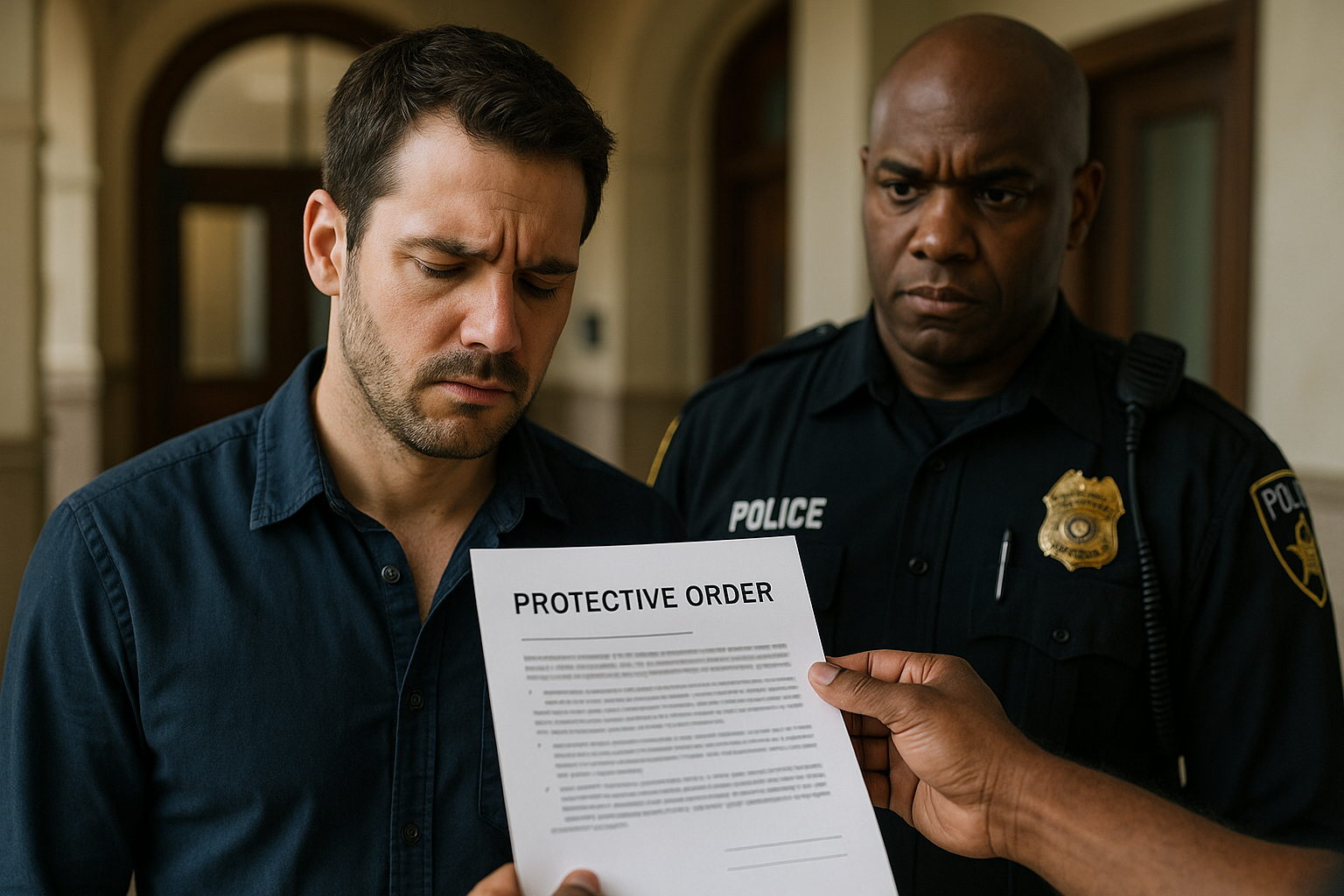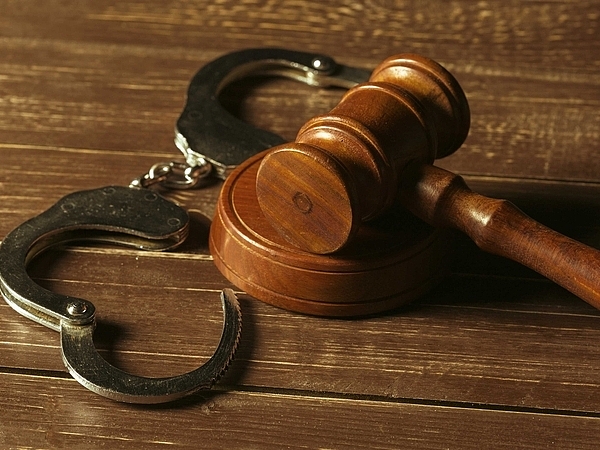What Is The Role Of A Jury In A Texas Criminal Trial?
In the state of Texas, juries play a vital role in the criminal justice system. A jury is a group of citizens selected to hear evidence and determine whether someone accused of a crime is guilty or not guilty. This process is known as trial by jury and is protected under the Sixth Amendment to the United States Constitution.
During a criminal trial, both the prosecution and defense present their cases to the jury, who must then evaluate the evidence and decide on a verdict. This process is crucial in ensuring that justice is served, as juries provide an impartial and unbiased perspective on the case.
In Texas, juries are made up of 12 individuals selected from a pool of registered voters or licensed drivers in the county where the crime took place. These individuals must be at least 18 years old, able to read and write and have no felony convictions. They are randomly selected by the court and summoned to serve as jurors.
Once selected, jurors are required to attend the trial proceedings for the duration of the case. This may involve hearing testimony from witnesses, examining physical evidence, and listening to arguments from both sides. Jurors are also given specific instructions on how to evaluate the evidence and reach a verdict based on the law.
In Texas, jurors are not allowed to discuss the case with anyone outside of the jury or conduct their own research. They must base their decision solely on the evidence presented in court and follow the instructions given by the judge. This ensures that all parties involved receive a fair trial.
After deliberating, the jury must reach a unanimous decision to render a verdict. If they cannot come to a unanimous decision, it results in a hung jury and the case may be retried with a new set of jurors.
The role of the jury in Texas criminal trials is crucial in upholding justice and protecting the rights of both the accused and the victim. Their role is to weigh the evidence and make a fair and impartial decision based on the law.
By serving on a jury, citizens play an active role in their community and help ensure that justice is served for all. It can be said that juries are an essential part of the criminal justice system in Texas, providing a crucial check and balance to maintain fairness and integrity in the legal system.
They play a crucial role in safeguarding the rights of both the accused and the victim, ensuring that justice is served fairly and impartially. Additionally, by serving on a jury, citizens have an opportunity to actively participate in their community and contribute towards upholding justice.
How Is A Jury Selected For A Texas Criminal Trial?
The process of selecting a jury for a Texas criminal trial is known as voir dire, which means “to speak the truth” in French. During this process, potential jurors are questioned by both the prosecution and defense to determine their impartiality and suitability for the case at hand.
Jurors may be excused if they have prior knowledge or personal connections to the case, have strong biases or opinions that may affect their judgment, or have any other conflicts of interest. This ensures that the jury is comprised of individuals who can make a fair and impartial decision.
In addition to voir dire, potential jurors may also be subject to challenges. A challenge for cause is when either the prosecution or defense requests that a potential juror be dismissed due to a specific reason, such as a conflict of interest. A peremptory challenge is when either side can dismiss a potential juror without giving a reason.
The jury selection process in Texas aims to create a diverse and impartial group that can fairly evaluate the evidence presented in court. This helps uphold the principles of justice and fairness in the criminal justice system.
In conclusion, the role of a jury in a Texas criminal trial is crucial in ensuring that justice is served fairly and impartially. The process of selecting a jury also plays a significant role in upholding the principles of justice, as potential jurors are carefully evaluated to ensure an unbiased and diverse group.
By serving on a jury, citizens play an active role in their community and contribute towards upholding the integrity of the legal system. So, potential jurors need to take their role seriously and fulfill their civic duty with honesty and integrity. Ultimately, the goal of a jury is to provide a fair and just outcome for all parties involved in a criminal trial.
Additional Factors to Consider in Jury Selection
While the selection of jurors in Texas is primarily based on voter and driver registration, other factors can come into play during the process. These factors may include demographics, such as age, race, and gender, as well as the occupation and educational background of potential jurors.
In some cases, these demographic or occupational factors may be relevant to the case being tried and may be taken into consideration during jury selection. For example, if a case involves a complex financial crime, jurors with a background in finance or accounting may be considered more suitable for the case.
Additionally, the process of jury selection in Texas is also influenced by historical and cultural factors. Due to past discrimination in jury selection based on race or gender, certain measures have been put in place to ensure a fair and diverse representation on juries. These measures include the use of jury pools from multiple sources, as well as the ability for either side to dismiss potential jurors without giving a reason, known as peremptory challenges.
Both sides in a criminal trial need to have confidence in the impartiality and diversity of the jury, as it ensures that the legal system operates fairly and justly. By taking into consideration various factors during jury selection, the goal is to create a well-rounded and unbiased group of individuals who can make an informed decision based on the evidence presented in court.
While there are specific guidelines that govern jury selection in Texas criminal trials, there are also additional factors that may come into play depending on the case at hand. Ultimately, the goal is to create a fair and impartial jury that can provide a just outcome for all parties involved in the trial.
By having a diverse and unbiased jury, the principles of justice and fairness are upheld, serving as a fundamental aspect of the Texas criminal justice system. So, while individuals may see jury duty as a burden or inconvenience, it is a vital civic duty that plays a crucial role in maintaining the integrity of the legal system.
Can A Defendant Choose To Have A Bench Trial Instead Of A Jury Trial In Texas?
The short answer is yes. In Texas, a defendant has the right to choose between a jury trial or a bench trial, also known as a trial by judge.
In a bench trial, the judge serves as both the finder of fact and the decision-maker, whereas in a jury trial, it is up to the jurors to weigh the evidence and decide based on their findings.
While a defendant may choose to have a bench trial, it is important to note that they must waive their right to a jury trial in writing. This waiver ensures that the defendant fully understands and agrees to proceed with a bench trial instead of a jury trial.
Additionally, the prosecution must also agree to a bench trial for it to take place. If either party does not agree, then the case will proceed to a jury trial.
There are various reasons why a defendant may choose to have a bench trial instead of a jury trial. One common reason is to avoid potential biases that jurors may bring into the courtroom. Judges are trained legal professionals who are expected to weigh evidence objectively and make decisions based on the law.
Another reason may be due to the complexity of the case. In some instances, a defendant may feel that a judge would be better equipped to understand and evaluate complex legal issues compared to a jury.
In conclusion, a criminal defendant in Texas does have the choice to opt for a bench trial instead of a jury trial. However, this decision must be made carefully and with a full understanding of the implications. Whether it is a jury trial or a bench trial, the goal remains the same – to uphold justice and fairness in the criminal justice system.
Defendants need to discuss their options with their legal counsel and make an informed decision that best serves their case. Overall, both jury trials and bench trials play crucial roles in ensuring that the principles of justice are upheld in the state of Texas. Whether a defendant chooses a jury trial or a bench trial, the goal is to provide a fair and just outcome for all parties involved in the criminal trial.
Therefore, both sides need to respect and trust the legal system and its processes, including the selection of a jury or judge for their case. The integrity of the legal system is maintained through these processes, and it is the responsibility of all citizens to take their role in upholding it seriously. So, whether one is serving on a jury or choosing a bench trial, they are contributing towards maintaining the fairness and integrity of the criminal justice system in Texas.
What Factors Can Influence A Jury’s Decision In A Texas Criminal Trial?
Several factors can impact a jury’s decision in a Texas criminal trial. These include, but are not limited to:
- The presentation of evidence and witness testimony: Jurors are expected to weigh the evidence presented in court and make their decision based on the facts. However, how this information is presented can also influence their perception and ultimately their decision.
- Pre-trial publicity: If a case receives significant media attention before the trial, it may impact the jurors’ ability to remain impartial and make an unbiased decision.
- Personal biases or experiences: Jurors are expected to set aside any personal biases or experiences when evaluating a case. However, this can be challenging for some individuals and may influence their decision-making process.
- Courtroom dynamics: Factors such as the behavior of the attorneys, judge, and witnesses can also impact a jury’s decision. For example, aggressive questioning or emotional testimony may sway jurors in one direction or another.
- Racial or gender biases: Despite measures put in place to ensure a diverse representation on juries, implicit biases may still exist among some jurors, which can ultimately affect their decision-making process.
- Personal beliefs and values: Jurors may also bring their own beliefs and values into the courtroom, which can influence how they perceive and interpret evidence presented in the trial.
Juries are expected to remain impartial and base their decision solely on the evidence presented in court. However, these factors can potentially impact a jury’s decision-making process, highlighting the importance of fair and objective jury selection in Texas criminal trials.
By acknowledging and addressing these potential influences, both the prosecution and defense can work towards ensuring a fair trial for all involved. In addition, judges play a crucial role in overseeing the trial and ensuring that jurors remain impartial throughout the proceedings.
In conclusion, various factors can influence a jury’s decision in a Texas criminal trial. It is the responsibility of all parties involved to recognize and address these factors to uphold justice and fairness in the legal system.
Whether it is through unbiased jury selection or ensuring a fair presentation of evidence, every effort must be made toward achieving a just outcome for all individuals involved in the criminal trial process.
How Can A Texas Criminal Defense Attorney Assist Me In Jury Selection For My Criminal Case?
A Texas criminal defense attorney can play a crucial role in jury selection for a criminal case. They have the legal expertise and experience necessary to identify potential biases and ensure that jurors are selected fairly and impartially.
When it comes to jury selection, a criminal defense attorney will carefully review potential jurors’ backgrounds, including any past experiences or affiliations that may impact their ability to remain unbiased. They may also conduct thorough interviews of potential jurors to gather more information and insights into their views and beliefs.
Moreover, a criminal defense attorney can use their knowledge of the legal system and its processes to challenge any potential juror who may hold biases that could potentially impact the outcome of the trial. They can also work with the prosecution to agree on the selection of impartial jurors.
In addition to selecting a fair and impartial jury, a criminal defense attorney can also assist in strategizing the presentation of evidence and arguments that may sway the jury towards a favorable decision for their client. They can also guide jury deliberations, ensuring that the jurors are evaluating the evidence accurately and following proper legal procedures.
In summary, a Texas criminal defense attorney plays a crucial role in jury selection, ensuring that the principles of justice and fairness are upheld throughout the criminal trial process. By working diligently to select an impartial jury and providing legal expertise during the trial, they can help their clients achieve a fair outcome for their case.
It is essential for defendants to carefully select an experienced and competent criminal defense attorney who will work tirelessly to protect their rights and ensure a just outcome. Ultimately, the role of a criminal defense attorney in jury selection is vital in upholding the integrity and fairness of the Texas criminal justice system.
‹ Back














